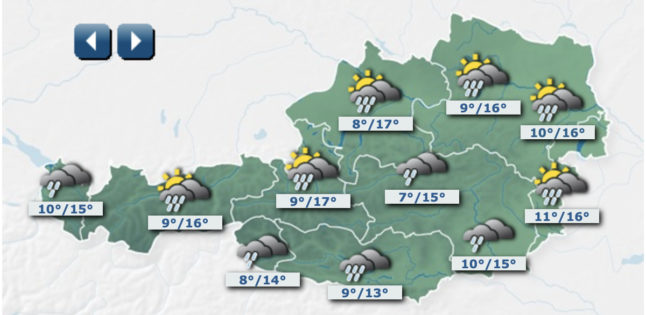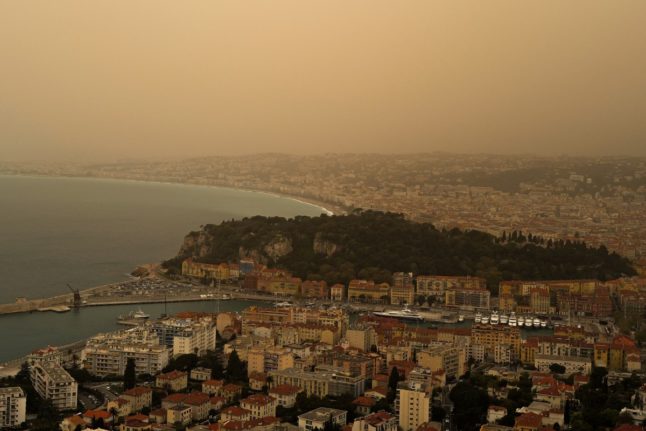On Friday, people in Austria woke up to a foggy day that quickly turned into an unexpectedly sunny day with mild temperatures. Still, the country’s weather is about to change, Austria’s meteorologic institute ZAMG said.
Saturday should still have some periods of sunshine, especially in the eastern half of the country – perfect for those who will take part in the Viennese Wine Hiking Day (Wiener Weinwandertag), as temperatures should stay around 15C to 18C during the day.
READ ALSO: Wiener Weinwandertag: Everything you need to know about Vienna’s ‘Wine Hiking Day’
In Vorarlberg and Tyrol, however, it may already start to rain, especially south and along the main ridge of the Alps.
Early temperatures in Austria are expected to be between one and eleven degrees, with lower values in the north and daytime highs of 15C to 21C.

On Sunday, dense clouds will dominate and rain is expected in many places. However, a few sunny spells are quite possible in between, most likely in the north and east of the country.
Mostly weak to moderate winds from south to west. Early temperatures will be between six and twelve degrees and daytime highs between 13 and 18 degrees.
READ ALSO: What’s on: Five things to do in Vienna this weekend
On Monday, sun and partly dense clouds will alternate. In the course of the day, there may be rain showers, especially in the mountains, where the clouds are often thicker.
Early temperatures will be between six and twelve degrees, with daily highs between 13C and 19C.
READ ALSO: Top tips to protect yourself from storms in Austria
Stormy weather from Tuesday
On Tuesday, the unsettled weather will continue. Although there may be sunny spells sometimes, clouds will predominate.
Rain showers are expected in all parts of the country, and it could rain for longer periods in some areas.
Early temperatures are between six and twelve degrees, and daily highs are between eleven and 17 degrees.




 Please whitelist us to continue reading.
Please whitelist us to continue reading.
Member comments